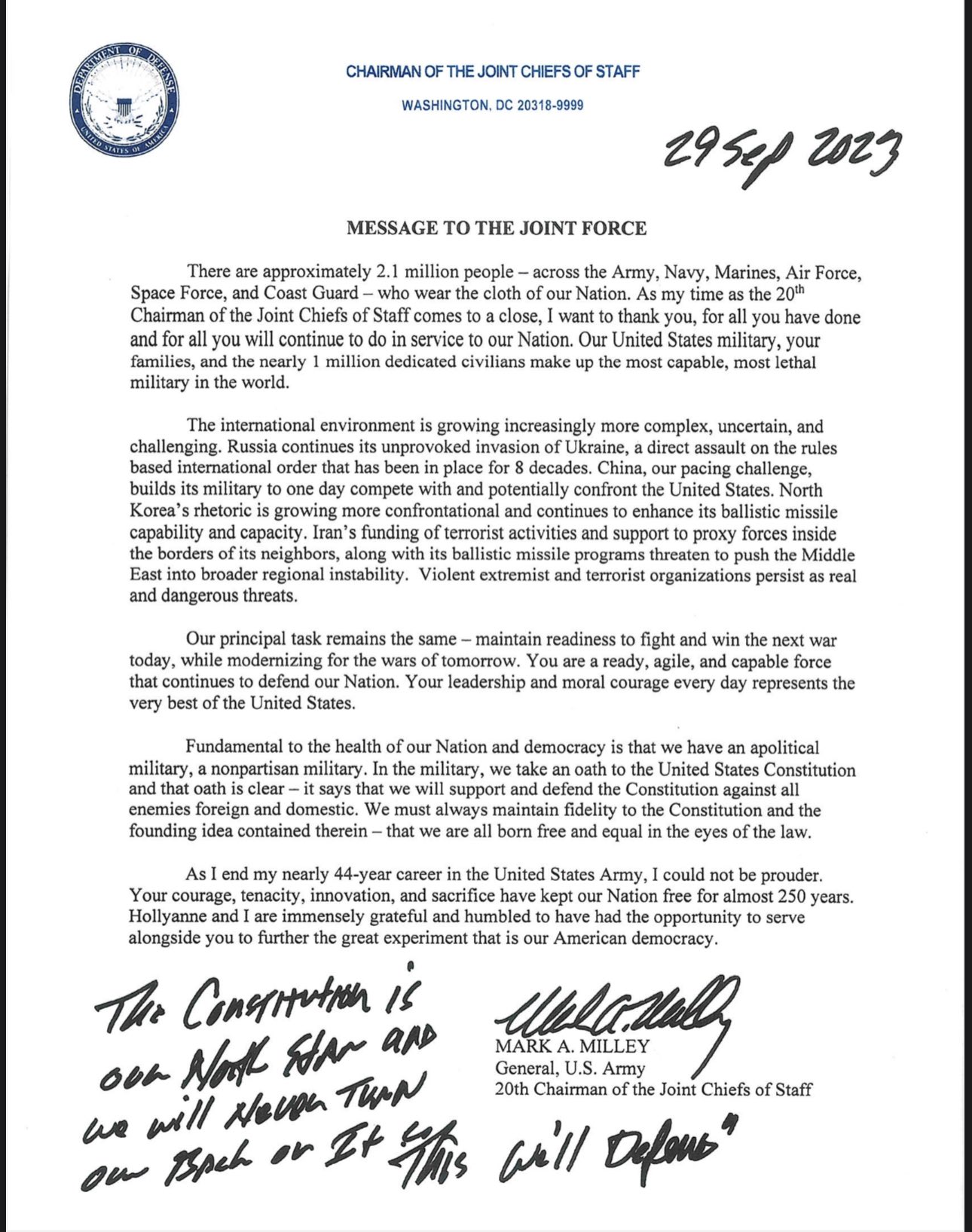More:https://t.co/Dc6BmdOxpv pic.twitter.com/P7qxhtMVuG
— U.S. Air Force (@usairforce) September 29, 2023
Throughout his career, General Brown deployed or directly supported various critical operations, including Operation Southern Watch, Operation Northern Watch, Operation Enduring Freedom, Operation Odyssey Dawn, Operation Unified Protector, and Operation Inherent Resolve.
His impressive track record also includes:
- Commanding a fighter squadron and two fighter wings.
- Overseeing US air forces under the Central Command and Indo-Pacific Command.
- Serving as the chief of staff of the Air Force.
Championing Diversity in Leadership
General Brown’s personal experiences have also shaped his perspective on leadership and diversity.
In the wake of George Floyd’s murder by a white police officer in Minnesota in 2020, he recorded an emotional video discussing his own encounters with discrimination within the American military.
Brown candidly revealed that he felt pressured to “perform error-free” and worked “twice as hard” to dispel stereotypes associated with his race. He expressed a commitment to making personal, professional, and institutional improvements to create an environment where all members of the Air Force can reach their full potential.
Biden’s Endorsement of General Brown
President Joe Biden praised General Brown’s nomination as the next chairman of the Joint Chiefs of Staff, describing him as exceptionally suited and qualified to lead the nation’s armed forces.
Moreover, he noted that General Brown comes from a family with a strong military tradition, underscoring his lineage of warriors who served the United States with distinction.
A Historic Milestone in US Military Leadership
The nomination of General Brown was a landmark moment in US history, as it marked the first time that both of the Defense Department’s top leaders—the secretary of defense and the chairman of the Joint Chiefs—were African American. This historic milestone reflects the progress made in the US armed forces and their commitment to diversity and inclusivity.
In his new role, General Brown will hold the highest military rank in the nation and serve as the primary military advisor to the US President, the Secretary of Defense, and the National Security Council.
His appointment comes at a time when the United States faces significant challenges and a renewed focus on addressing issues of racial injustice and discrimination.
With each leadership opportunity I’ve had during my career, I’ve been honored, blessed, & proud. To serve alongside the best #Airmen in the world as the 22nd @USAirForce Chief of Staff was a tremendous privilege. Thank you for your courage & commitment to #AccelerateChange. pic.twitter.com/0kHYOxzqk6
— General CQ Brown, Jr. (@GenCQBrownJr) September 28, 2023
Confirmation Amidst Controversy
General Brown’s nomination faced obstacles along the way, including a dispute over Pentagon policies related to reproductive health care for troops stationed in areas where such care is unavailable.
A single Republican senator opposed these efforts, leading to delays in the confirmation of senior military nominees. However, General Brown ultimately secured his confirmation through an individual vote on his nomination.
General CQ Brown’s assumption of the role of chairman of the Joint Chiefs of Staff marks a pivotal moment in US military leadership. As he takes the helm during a period of profound challenges and transformation, the nation looks to him to provide strong, principled leadership and guidance in service of the United States and its armed forces.











COMMENTS